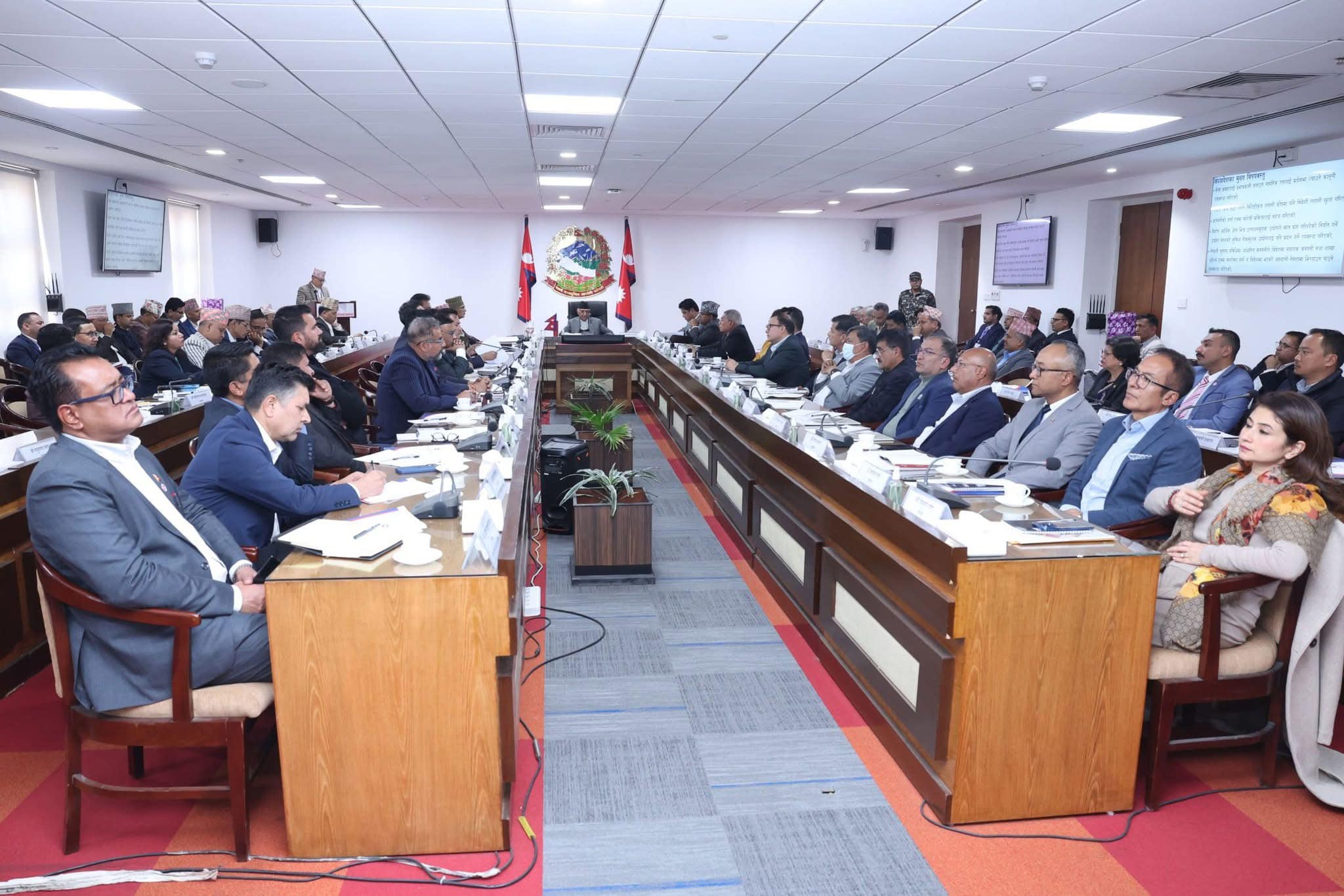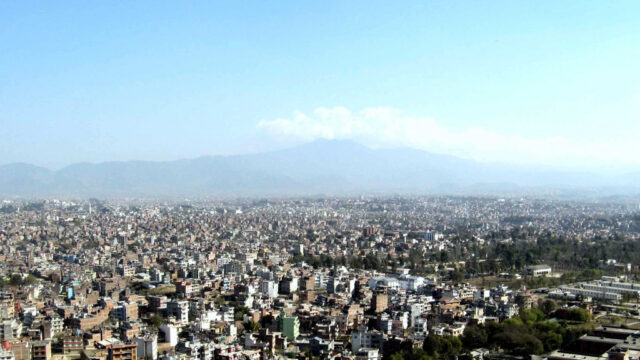In a recent development, a prominent private sector leader has expressed deep gratitude after being nominated as one of the 25 private sector representatives in the Industry-Trade Management Dialogue Council, formed under the leadership of Prime Minister KP Sharma Oli. The nomination marks a significant effort to strengthen collaboration between the private sector and the government in addressing critical economic challenges.
The council aims to facilitate dialogue and cooperation between business leaders and policymakers. During the discussions, concerns were raised about key economic issues affecting Nepal’s workforce and business environment. One of the most pressing matters highlighted was the alarming trend of youth migration, which has led to a severe shortage of both skilled and unskilled labor within the country.
Additionally, discussions shed light on the challenges businesses face in offering competitive wages. Many employees continue to be underpaid due to financial constraints within companies, further reflecting the fragile state of Nepal’s economy.
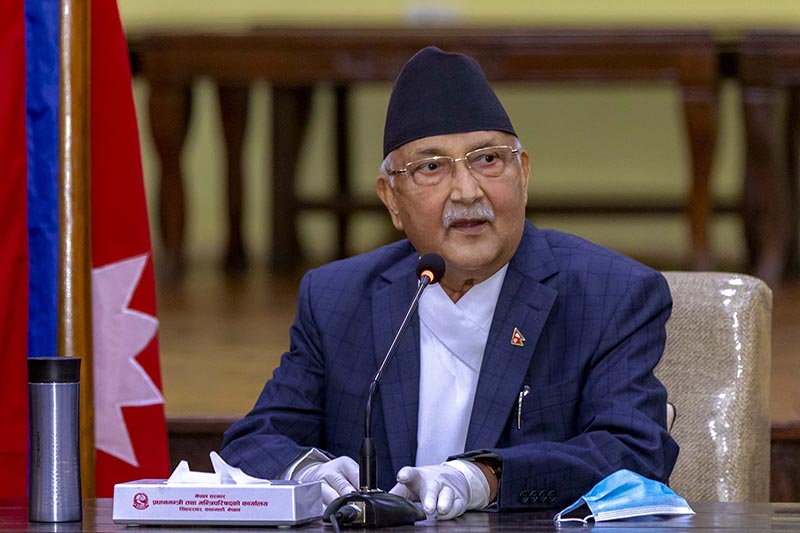
In the wake of growing concerns over the country’s economic struggles, the pressing question remains: What steps should be taken next? The Honorable Prime Minister’s firm commitment to tackling these pressing issues has instilled a renewed sense of optimism. His decisive stance suggests that meaningful reforms could soon be underway.
The urgency for economic and infrastructure development cannot be overstated. As Nepal navigates its economic crisis, implementing effective policies will be crucial, even if they provoke political debates, opposition, or public discourse. However, such initiatives are essential for fostering long-term prosperity, generating employment opportunities for youth, promoting entrepreneurship, and restoring public confidence in the nation’s future.
To address these challenges comprehensively, the government has established six thematic committees, each tasked with focusing on different aspects of national development. These committees aim to formulate strategic solutions that balance immediate needs with long-term growth. Among them, representatives from the tourism and aviation sectors will play a critical role in addressing industry-specific obstacles and identifying actionable solutions to revitalize these key economic drivers.
As the government moves forward, stakeholders from various sectors will be closely watching how these measures unfold, hoping for effective implementation that brings tangible progress to Nepal’s economy.
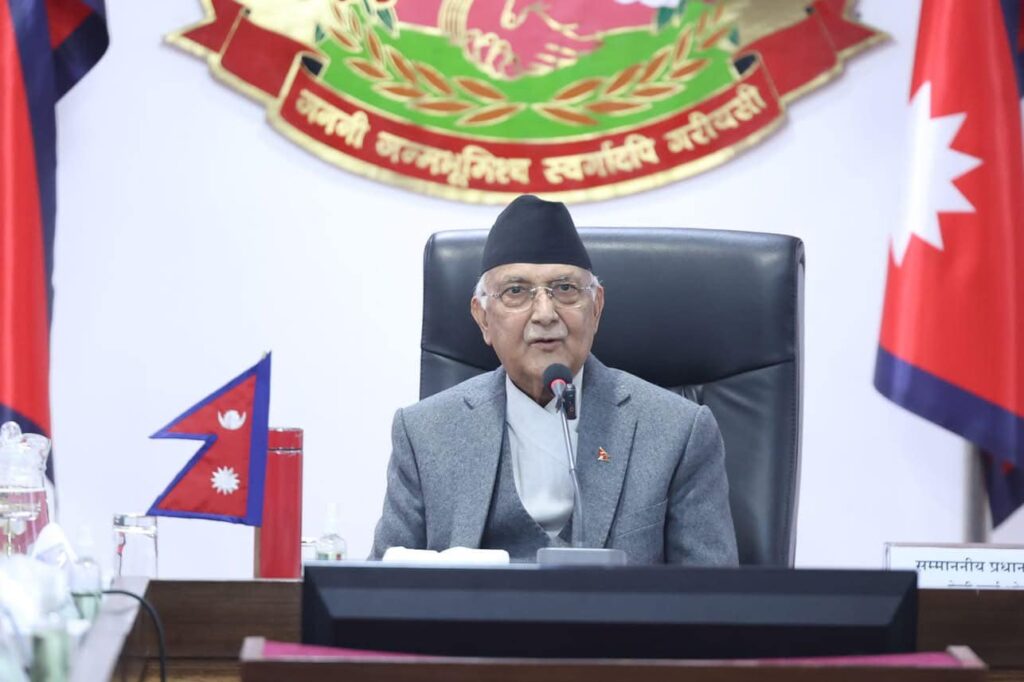
In the wake of growing concerns over the country’s economic struggles, the pressing question remains: What steps should be taken next? The Honorable Prime Minister’s firm commitment to tackling these pressing issues has instilled a renewed sense of optimism. His decisive stance suggests that meaningful reforms could soon be underway.
The urgency for economic and infrastructure development cannot be overstated. As Nepal navigates its economic crisis, implementing effective policies will be crucial, even if they provoke political debates, opposition, or public discourse. However, such initiatives are essential for fostering long-term prosperity, generating employment opportunities for youth, promoting entrepreneurship, and restoring public confidence in the nation’s future.
To address these challenges comprehensively, the government has established six thematic committees, each tasked with focusing on different aspects of national development. These committees aim to formulate strategic solutions that balance immediate needs with long-term growth. Among them, representatives from the tourism and aviation sectors will play a critical role in addressing industry-specific obstacles and identifying actionable solutions to revitalize these key economic drivers.
As the government moves forward, stakeholders from various sectors will be closely watching how these measures unfold, hoping for effective implementation that brings tangible progress to Nepal’s economy.
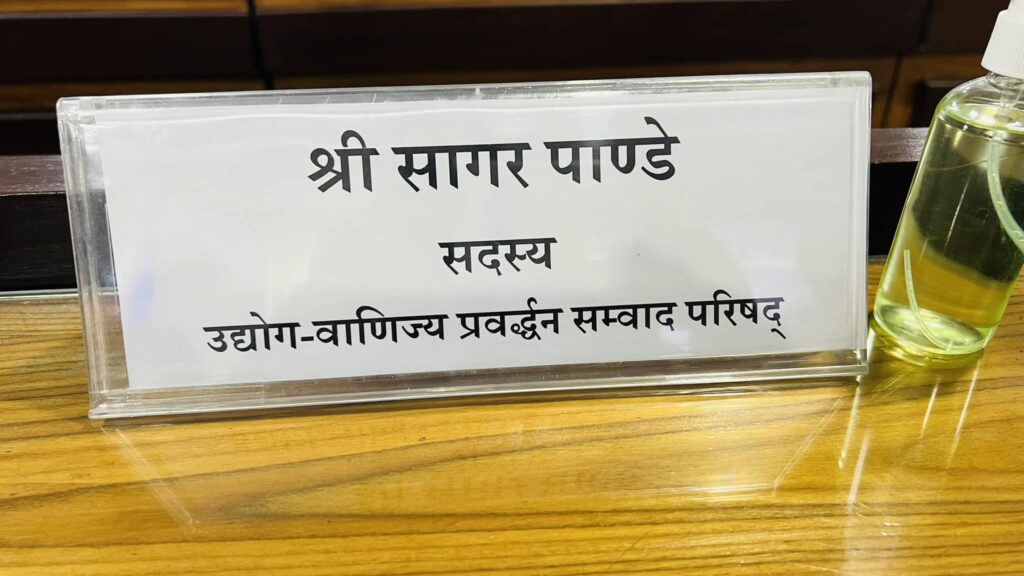
Here are the major agendas that emerged from the discussions, summarizing the issues and proposed solutions:
- Inclusion of Private Sector Tourism Policy and Act: The tourism policy and laws proposed by the private sector must be included and incorporated into the national framework. This will ensure that the policies align with the real challenges faced by the industry and can lead to sustainable growth.
- Expansion of Direct Air Services: A proposal was made to establish Government-to-Government (G to G) partnerships with neighboring countries like India and China to streamline tourism management. Expanding direct air services to and from these countries will boost tourism and improve connectivity.
- Removal from the EU Blacklist: The EU has blacklisted Nepal, adversely affecting the tourism and aviation sectors. Immediate removal from this list is crucial, and efforts have already begun in this regard. Speeding up this process will help restore Nepal’s international reputation and attract more tourists.
- Recommendations for Improving Nepal Airlines: Private sector representatives have provided three key suggestions for improving Nepal Airlines. The government must select and implement the most effective recommendations to enhance the airline’s services and operational efficiency.
- Development of Airports in Mairhawa and Pokhara: These airports require further development to serve international flights effectively. Offering special packages for foreign airlines to operate from these airports would enhance their functionality and attract international carriers.
- Development of Religious Tourism: Nepal and Tibet share religious ties, and it has been proposed that the Korla border crossing between Nepal and China be opened for tourism. This would attract religious tourists and boost cross-border cultural exchange and economic activity.
- Access to Remote Areas for Foreign Tourists: To increase accessibility to remote areas for international tourists, single-entry permits should be introduced for controlled zones. This will ensure that more tourists can explore Nepal’s less-traveled regions without compromising safety.
- Trekking Safety and Employment Opportunities: To enhance safety for tourists and create more jobs in the trekking sector, it was proposed that only government-approved trekking companies be allowed to take tourists to high-altitude trekking areas. This will also create employment opportunities for local guides and porters.
- Collaboration Between the Private Sector and Local Authorities: Coordination and collaboration between the private sector, local authorities, and the central government are essential for improving tourism-related infrastructure and services.
- Promotion of SMEs: Better access to banking services for small and medium-sized enterprises (SMEs) is needed. The government should facilitate low-interest loans without cumbersome procedures to promote entrepreneurship and create business opportunities.
- Review of Tax System: The current tax system needs to be reviewed and expanded. Increasing the tax base will not only improve tax revenue but also encourage transparency in business practices, helping control corruption.
- Improvement of Tourist Transport Facilities: Many tourist transport services are subpar and costly. By introducing specific criteria and offering discounts for tourist vehicles, the government can ensure better quality and affordability in transportation services.
It is evident that these agendas play a crucial role in shaping the nation’s economic trajectory. Addressing these pressing issues will not only enhance the overall travel experience but also contribute significantly to economic growth, job creation, and national prosperity.
Industry stakeholders emphasize that the government must take concrete steps to implement the recommended policies, ensuring a balanced and sustainable development model that benefits both the private and public sectors. With strategic interventions, Nepal can unlock its full potential as a thriving tourism and aviation hub in the region. The onus now lies on policymakers to translate these recommendations into actionable reforms.
